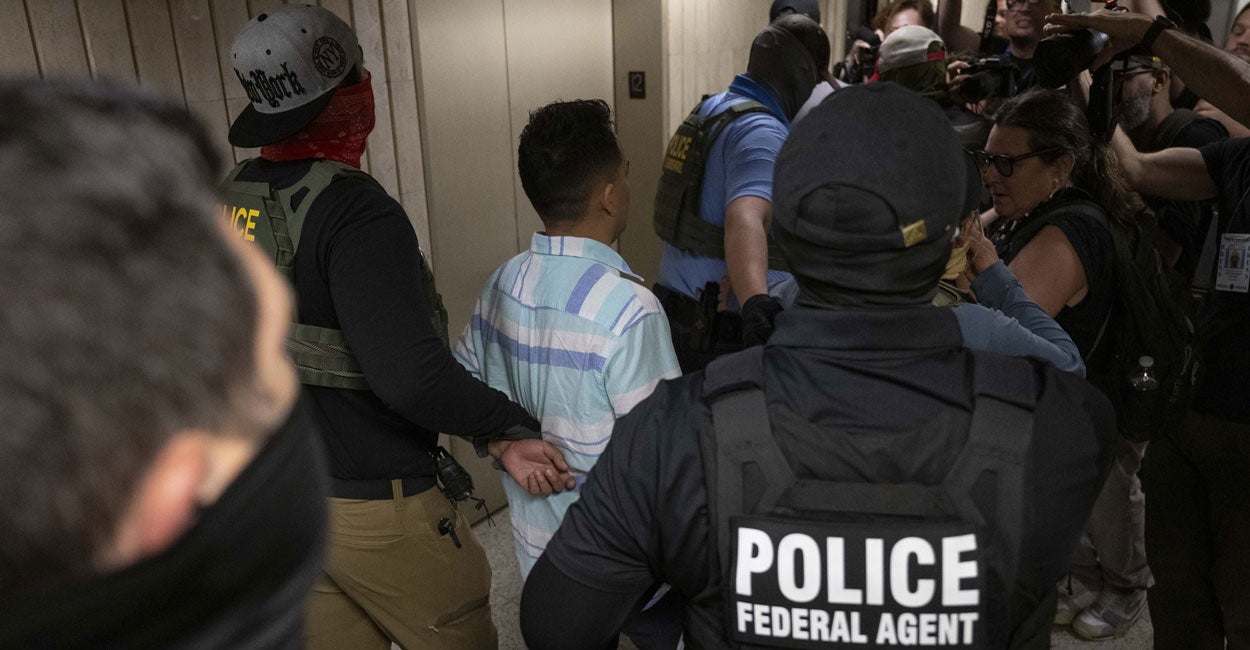After Legal Setback, What’s Next for Trump’s Effort to Deport Illegal Alien Gang Members?

President Donald Trump’s use of a 1798 law to expedite deportations of foreign gang members is almost certainly headed for the Supreme Court, where legal experts anticipate the administration will prevail.
Live Your Best Retirement
Fun • Funds • Fitness • Freedom
A panel of the 5th Circuit U.S. Court of Appeals ruled 2-1 this week to impose an injunction on the Trump administration using the Alien Enemies Act to deport members of the Venezuela-tied Tren de Aragua gang, also known as TdA.
The law was primarily used in connection to foreign wars, but a key Supreme Court precedent applied to post-World War II deportations well after hostilities ceased.
The Trump administration will likely ask the Supreme Court to put a hold on the appeals court’s preliminary injunction, said George Fishman, former deputy general counsel for the Department of Homeland Security, now a senior legal fellow at the Center for Immigration Studies.
“The Supreme Court has granted emergency stays before. It would allow the administration to go ahead and proceed with deportations until the legal question is settled. There is no guarantee the Supreme Court would grant the stay,” Fishman told The Daily Signal.
Plaintiffs celebrated the appeals court decision.
“This critical decision makes clear that the president cannot invoke whatever powers he wants. This is a huge victory for the rule of law,” Lee Gelernt, deputy director of the immigrant rights project for the American Civil Liberties Union and the lead counsel who argued the appeal, said in a public statement.
The Alien Enemies Act has only been used during the War of 1812, World War I, and shortly after World War II.
The Alien Enemies Act says that during “declared war” when there is “any invasion or predatory incursion” against the United States by any foreign nation or government, the president shall make a proclamation that citizens “of the hostile nation or government being males of the age of fourteen years and upwards, who shall be within the United States and not actually naturalized, shall be liable to be apprehended, restrained, secured, and removed as alien enemies.”
Fishman said, “The Supreme Court will decide what a predatory incursion is and if it means something other than a foreign military force.”
“In this situation, using the Alien and Enemies Act is unprecedented when there is not a war with a foreign nation,” said Fishman, who was also former chief counsel for the House Homeland Security Committee and the House Judiciary Committee. “As I argued in 2023, it is appropriate to use it in a situation when organized crime is intertwined with the government. TdA and Venezuela are arguably a hybrid crime state. There is evidence that organized crime is coming to the United States at the behest of a government.”
One precedent for the rarely used law is the Supreme Court’s 1948 ruling in the case of Ludecke v. Watkins, said Hans von Spakovsky, senior legal fellow at The Heritage Foundation.
“The attorney general in 1946 used the Alien Enemies Act to remove a German national from the U.S. The war was over. The German national initiated a habeas petition” challenging the validity of this removal order because the war had ended, von Spakovsky, a former Justice Department lawyer, told The Daily Signal. “Whether or not there were still hostilities, the Supreme Court said, we’ll leave that up to the president to decide in 1948. That’s one of the few precedents in this entire law.”
Justice Felix Frankfurter wrote for the majority in the 5-4 ruling.
“It is not for us to question a belief by the president that enemy aliens who were justifiably deemed fit subjects for internment during active hostilities do not lose their potency for mischief during the period of confusion and conflict which is characteristic of a state of war even when the guns are silent but the peace of Peace has not come,” Frankfurter wrote. “These are matters of political judgment for which judges have neither technical competence nor official responsibility.”
The administration will likely ask the full 5th Circuit, which is a mostly conservative appeals court, to hear the case, von Spakovsky said. But he said the matter is important enough that the Supreme Court will decide it.
“It may be unprecedented in the sense that the law is hardly ever used. That doesn’t make the statute unapplicable,” von Spakovsky said. “There may not be a declaration of war. The statute doesn’t require a declaration of war. The statute requires the president’s judgment of a predatory incursion.”
The 5th Circuit court covers Texas, Louisiana, and Mississippi.
In the majority, U.S. Circuit Judge Leslie Southwick, a George W. Bush appointee, and Judge Irma Carrillo Ramirez, a Joe Biden appointee, determined in the opinion: “A country’s encouraging its residents and citizens to enter this country illegally is not the modern-day equivalent of sending an armed, organized force to occupy, to disrupt, or to otherwise harm the United States.”
In his dissenting opinion, Judge Andrew Oldham, a Trump appointee, wrote, “The majority’s approach to this case is not only unprecedented—it is contrary to more than 200 years of precedent.”
The post After Legal Setback, What’s Next for Trump’s Effort to Deport Illegal Alien Gang Members? appeared first on The Daily Signal.
Originally Published at Daily Wire, Daily Signal, or The Blaze
What's Your Reaction?
 Like
0
Like
0
 Dislike
0
Dislike
0
 Love
0
Love
0
 Funny
0
Funny
0
 Angry
0
Angry
0
 Sad
0
Sad
0
 Wow
0
Wow
0















































































